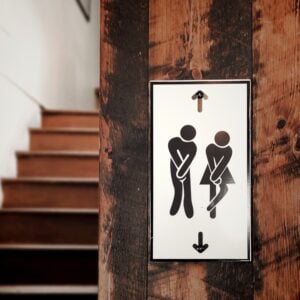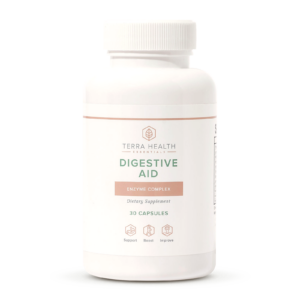Irritable bowel syndrome can be a very distressing and debilitating issue that people are often embarrassed to speak out about. But it’s actually one of the most common diseases diagnosed by GPs worldwide! If you suffer from the symptoms of IBS, you probably feel a distinct loss of control over your own body, and that stress can contribute to the symptoms you experience. So it’s an endless loop of discomfort – stress – and more discomfort.
But what you need to know is that you can live a normal life with IBS and there are things you can do to make it easier to deal with. In fact, in many cases, this illness can be eliminated completely. So the most important thing in dealing with this condition is to try to remain positive and open to anything that may help you to get it under control.
Although there is no cure for IBS, many people have reported successful elimination of symptoms and things like proper medication, diet, stress management, and lifestyle changes can make a monumental impact on how IBS affects your life.
These tips will help you to take back ownership of your body from this illness so that it has as little impact on your life as possible. They may even help you to eliminate it completely.
1. Prioritize Yourself and Your Health Above All Else
We all lead busy lives and self-care often takes a backseat as a result. But when you suffer from IBS, it’s imperative that you make time for taking proper care of yourself. Looking after your health should be your number 1 priority above everything else in your life. Because once it’s under control, everything else will become a little easier as a result.
2. Always Have a “Safe Snack” on Stand-by
You never know when you’re going to get caught out with hunger pangs in a cafe that just doesn’t cater to your diet or when you’re traveling on a bus/train/plane – anywhere that could make it tricky to find food that won’t set off your IBS. Everyone knows that “hanger” is a very real emotion, but when you have IBS it is definitely something that you want to avoid for your own sake as well as others! An empty stomach is not a good situation for someone with IBS. So don’t forget to pack a snack.
 3. Always Scope Out the Restrooms
3. Always Scope Out the Restrooms
If you’re going to a new restaurant/theatre/pub/any new place, make sure that you check in advance where the restrooms are in case you need them in an emergency. No-one wants the panic of having to go and not knowing where to go!
4. Your Hot Water Bottle is Your Best Friend
Stomach pain and cramping go hand in hand with IBS and a hot water bottle can work wonders when the pain gets too much. If you can pick up a hot patch or one of those microwavable heating pads they’re just as good.
5. Keep a Food Diary
IBS is different for everyone, so the foods that trigger symptoms in one person may have no effect on the other. Some people also experience chronic stomach pain from IBS whereas others experience flare-ups in bursts. For this reason, it’s super important that you use a food diary to keep track of your diet and symptoms and work out how IBS is personally affecting you. Once you do this, you can identify trigger foods and adjust your diet as needed.
Many people tend to try the FODMAP diet for this, as it focuses on avoiding the general foods that trigger IBS issues. This involves eliminating certain foods from your diet and for a period of a few weeks before reintroducing them one at a time to see how your digestive system reacts. Bear in mind that these foods will vary for everyone, but this is a good guide to start from.
6. Tight Elasticated Waistbands Are Not Your Friend
Tight clothes can be really uncomfortable for IBS sufferers as they press into an area that’s already painful and irritated! If you wake up feeling bloated, a pair of stretchy pants or a loose-fitting dress/skirt can make all the difference and help you stay comfy throughout the day.
7. Be Careful With Your Fiber Intake
Fiber is good for you. End of story. But, two of the main symptoms of IBS are constipation and diarrhea, which are closely linked to fiber intake. Too much fiber can lead to constipation, whereas too little can cause diarrhea. So a key part of adjusting your fiber intake involves figuring out what kind of IBS you have (i.e. IBS-C or IBS-D) and regulating your intake accordingly.
It’s All Trial and Error: Don’t Get Disheartened!
These tips won’t work for everyone. You might find one or two that work for you and if you do then that’s a win! You have to keep experimenting and trying different things to find out what helps with your own IBS and get a better understanding of what your body needs to help you feel better. If you have any tips of your own, please share them with us and other readers in the comments section below because if it’s worked for you – it’ll work for someone else somewhere too!
 Beat Flare-ups With Our Natural Digestive Aid
Beat Flare-ups With Our Natural Digestive Aid
Our expertly formulated Digestive Aid supplement will speed up the breakdown of trigger foods to provide you with instant relief from IBS flare-ups. And we’re giving our dedicated blog readers a special 30% discount!
To avail of this discount just use the code: naturalgasrelief30 when placing your Digestive Aid order.
Don’t forget to follow us on Facebook where you can contact us anytime with questions or a customized treatment plan!

